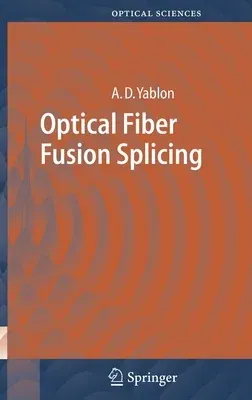Signi?cant advances in optical ?ber technology have created a need for
an up-to-date book about optical ?ber fusion splicing. Over the past 15
years, a variety of new optical ?bers including rare-earth-doped ?ber,
dispersi- compensating?ber, dispersion-matched?berpairs,
andmicrostructured?ber have been introduced. These ?bers are currently
used extensively in both research and commercial applications. Fusion
splicing of these ?bers has a signi?cant impact on their performance but
the relevant technical infor- tion has hitherto only been accessible by
sifting through numerous technical articles published over a span of
several decades. This book consolidates this scattered knowledge base
into one coherent reference source. This text is intended to serve as a
reference for an audience that is both diverse and rapidly growing. This
audience includes academic researchers -
vestigatingthelatestoptical?bertechnology, designersofcommercialoptical
?ber, ?ber splicing equipment engineers, and product development
engineers
designingoptical?berdevicesfromcommerciallyavailablecomponents.M-
ufacturersofoptical?ber, optical?ber components, optical?ber devices,
and optical ?ber splicers all require a sophisticated understanding of
optical ?ber fusion splicing. Optical ?ber fusion splicing is a
multi-disciplinary topic that combines concepts
fromdiverse?eldsincluding opticalwaveguidetheory, heattransfer,
materials science, mechanical engineering, reliability theory, ?uid
mechanics, and even image processing. This book is unique in that it
includes rigorous analyses from all of these very diverse ?elds.
Scientists and engineers int- ested in optical ?ber splicing who have a
background in one or two of these ?elds will bene't from relevant
knowledge in an unfamiliar ?eld.

